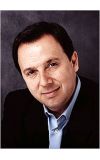
25 Sep 2011 02:31:06
According to Pulitzer Prize-winning author Ron Suskind, the incident is just one of several in which Obama struggled with a divided group of advisers, some of whom he didn't initially consider for their high-profile roles.
Suskind interviewed more than 200 people, including Obama, Geithner and other top officials for "Confidence Men: Wall Street, Washington, and The Education of A President," which will be released Sept. 20. The Associated Press purchased a copy on Thursday.
The book states Geithner and the Treasury Department ignored a March 2009 order to consider dissolving banking giant Citigroup while continuing stress tests on banks, which were burdened with toxic mortgage assets.
In the book, Obama does not deny Suskind's account, but does not reveal what he told Geithner when he found out. "Agitated may be too strong a word," Suskind quotes Obama as saying. Obama says later in the book that he was trying to be decisive but "the speed with which the bureaucracy could exercise my decision was slower than I wanted."
Geithner says in the book that he did not recall that Obama was mad at him about the Citigroup decision and rejected allegations contained in White House documents that his department had been slow to enact the president's plans.
"I don't slow walk the president on anything," Geithner told Suskind.
"The Citbank incident, and others like it, reflected a more pernicious and personal dilemma emerging from inside the administration: that the young president's authority was being systematically undermined or hedged by his seasoned advisers," Suskind writes.
Suskind states that Obama accepts the blame for mismanagement in his administration while noting that restructuring the financial system was complicated and could have resulted in deeper financial harm. One of the major complaints about Obama's administration is that it was too easy on major financial institutions, including Citi. The president had wanted Treasury officials to focus on a proposal to dissolve the bank, but no plan was ever created, the book states.
In a February 2011 interview with Suskind, Obama acknowledges another ongoing criticism — that he is too focused on policy and not on telling a larger story, one the public could relate to. Obama is quoted as saying he was elected in part because "he had connected our current predicaments with the broader arc of American history," but that such a "narrative thread" had been lost. Obama observes that he and fellow Democrats Bill Clinton and Jimmy Carter "all have sort of the disease of being policy wonks."
Suskind's book supports other accounts of disagreement among advisers over how large a stimulus was necessary to revive the economy and how aggressively to deal with financial institutions that had become "too big to fail."
Larry Summers, the former White House economic adviser, is quoted as lamenting that he and others felt "home alone" and that mistakes made under Obama would not have happened under President Clinton, for whom Summers also served. Interviewed by Suskind, Summers initially denied making such comments, then acknowledged them, saying he was frustrated at having "five issues" of major importance to deal with at once and not "five times as many" officials to handle them.
The book says one of Obama's top advisers, former chief of staff Rahm Emanuel, was not the president's first choice for the position. According to Suskind, Emanuel's name was not even on the initial short list, which included White House aide Pete Rouse.

